Organic Doesn't Always Mean Pesticide-Free
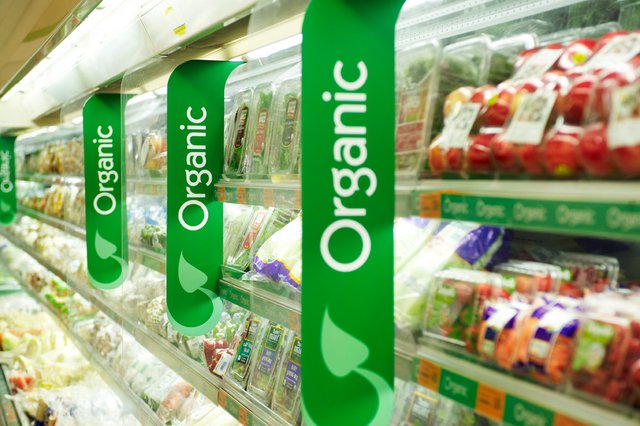
Organic food sales have skyrocketed throughout the US over the last few years, with an estimated $43.3 billion in total organic sales for 2015. Many people have been turning to the organic market because they believe that it is superior to the non-organic market. And one of the reasons that they believe this to be true is because they think that organic means no-pesticides were used for the growing of the crop, but it turns out that this isn't always the case.
Every year the USDA gathers roughly 10,000 samples of fruits and vegetables from both the organic and non-organic market. This yearly analysis is known as the USDA Pesticide Data Program (PDP) and back in 2015 it found evidence of pesticide use on a number of organic samples.
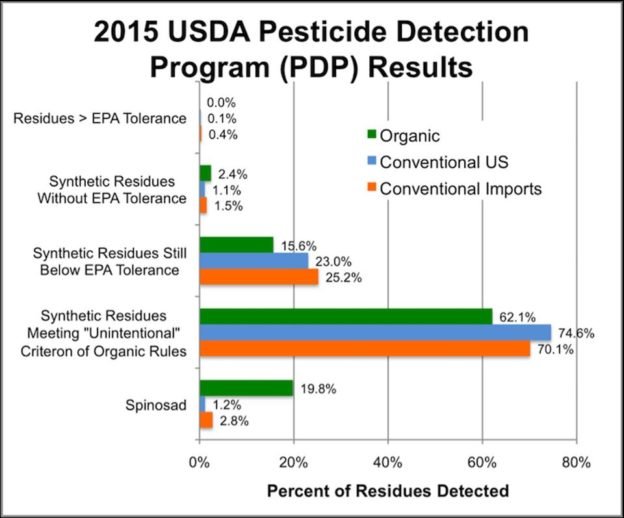
For their 2015 study, they found residues of about 68 different pesticides, as well as pesticide metabolites, and plant growth regulators, on their samples of organic fruits and vegetables.
For some of the samples, the chemical residue was even found to be higher than on the conventional non-organic samples.
These results go to show that despite a product being labeled as 'organic' it can still be grown with the use of pesticides. Organic farmers are restricted to using a limited variety of pesticides which are known to be "naturally-derived". According to the National Center for Food and Agricultural Policy, the two most popularly used fungicides for organic growing, are copper and sulfur.
It's believed by many that naturally-derived organic pesticides are going to be healthier for us than synthetic options, but research into this area suggests that there is still cause to worry with consumption of organic pesticides. And it's alleged that they can promote a variety of potential health issues. Imagine what potential health issues the synthetic ones might foster.
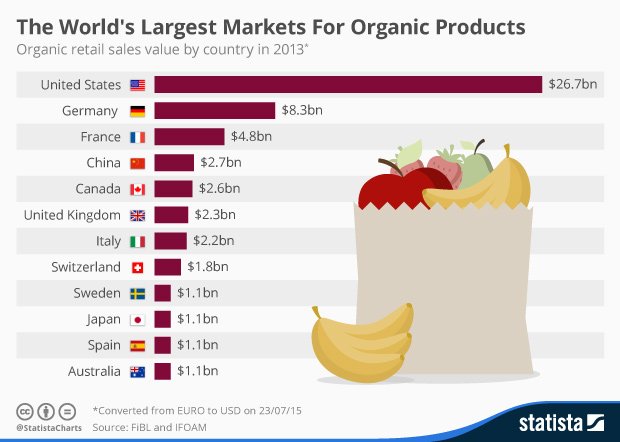
Demand for organic food isn't just growing in the US either, it's growing in many places around the globe. As is the trend toward self-sufficiency and a newfound popularity for gardening and farming. Especially thanks to a number of technology developments today, like that associated with hydroponics and aquaponics etc, it is helping to make growing more efficient and fun for many.
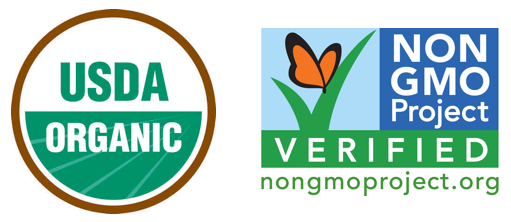
Just a decade or so ago, you would never even see the USDA organic or voluntary non-gmo label on any food items in the store. But now, depending on where you go, you likely see the designation on a wide variety of items in the market. That's because more consumers are increasingly demanding these items, and so now we are even seeing places like Walmart, Target, Fred Meyer, and others, provide a variety of organic options to their customers. Even more pet owners are increasingly turning to organic food for their pets.
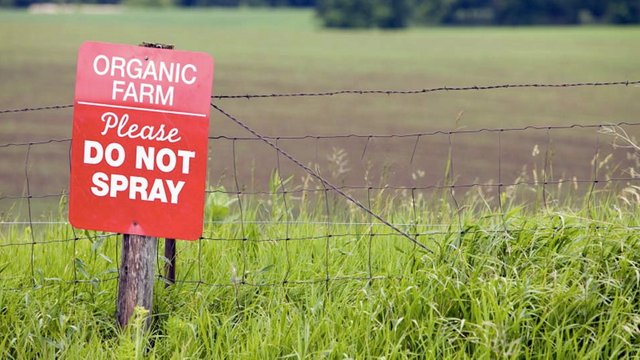
Despite the risk of picking up an organic food item that is laced with unwanted fungicides or pesticides etc, consumers still seem more than willing to pay much higher prices for organic items than the non-organic competitors. Some might wonder why any consumer would be willing to pay more for basic food items, when there are studies suggesting that you might not receive any more nutritional value from that food item than you would a non-organic item that has been grown with synthetic pesticides etc.
But not all organic crops are grown the same or provide the same value.
Aside from organic farmers who do use organic pesticides and fungicides, there are also a number of farmers out there today who don't use any chemicals or poisons on their food; it's all natural from start to finish. And those growers are hard to find.
Regardless of the anti-organic advocates, the market demand for organics is still growing strong and organic advocates remain adamant that organic foods are the superior option. Studies find that self-reported purchases of organic food, have been strongly associated with the belief that the product is going to provide some superior health benefit.

Pics:
Go Organic CA
Genetic Literacy Project
Statista
3dponics
The information that is posted above is not intended or implied to ever be used as any substitute for professional medical advice, or diagnosis or treatment. The above is posted for informational purposes only.
Source:
https://www.geneticliteracyproject.org/2017/03/10/buying-organic-food-to-avoid-pesticides-you-may-want-to-reconsider/
https://www.ota.com/news/press-releases/19031
https://www.statista.com/chart/3681/organic-retail-sales-value-by-country/
https://www.forbes.com/sites/stevensavage/2017/03/06/organic-might-not-mean-what-you-think-it-means/#4d9c824e3c3b
https://blogs.scientificamerican.com/science-sushi/httpblogsscientificamericancomscience-sushi20110718mythbusting-101-organic-farming-conventional-agriculture/
https://www.ncbi.nlm.nih.gov/pubmed/12781160
http://www.health.harvard.edu/blog/organic-food-no-more-nutritious-than-conventionally-grown-food-201209055264
http://www.petfoodindustry.com/articles/6130-organic-pet-food-market-positioned-for-growth?v=preview
Related Posts:
Hydroponics: New Life To An Old Way Of Growing
https://steemit.com/market/@doitvoluntarily/hydroponics-new-life-to-an-old-way-of-growing
Food Investigation: DNA Testing Of Popular Fast Food Chicken Products
https://steemit.com/food/@doitvoluntarily/food-investigation-dna-testing-of-popular-fast-food-chicken-products
Thank you for this great article, @doitvoluntarily.
USDA is funded by the government.
The government only wants to make money and doesn't give a shit about you or your health.
I've always tried putting 2 and 2 together, but I just can't seem to do it. lol
when the USDA tells me organic isn't that good for me, I take it with a grain of salt lol
Bingo. haha
No food is safe from man made poisons unless it's grown in a bubble. The hard part is picking the food that is less poisonous for you.
Thanks for posting the article.
Unfortunately I have to disagree here. Been living on a farm (first time) for over a year on an organic farm. The farm has been in the process of being a certified organic farm. The paperwork and red tape to achieve said certificate is delayed by the U.S.gov.
If a farmer who has been certified is caught using pesticides other than organic, they loose their certification. (as well they should).
Farmers who have property next to each other, have issues as 1 farmer maybe organic and the other not. When the one farmer sprays it can float on the air and spread to another property. (This is where I beileve we see issues in the news about it.) Your charts are a bit old in date but at least your bringing some data important data to light.
I think the real issue as that we have to label our food "organic" at all. It's the food that is sprayed that should be "labeled" and be more expensive.
Yet you grow something naturally without pesticides and it has to labeled and you are charged more for it.
Why do we not turn our city parks of the planet into "organic" food forests for everyone? Cure hunger feed the homeless?
Anthelme Brillat-Savarin wrote, in Physiologie du Gout, ou Meditations de Gastronomie Transcendante, 1826:
"Dis-moi ce que tu manges, je te dirai ce que tu es." [Tell me what you eat and I will tell you what you are].
Are there some pesticides on organic foods that make it to market: 100%
Is it the farmers fault? I'm going to say that a very very small amount of farmers who claim to be organic are lying: Definite possibilty
So who's to really blame? Thank Monsato and the U.S.A....
did you even read the post?....
I mentioned that there are different types of organic farmers and there are those who don't use any pesticides or fungicides etc. But there are still many "organic farms" that do use organic/natural pesticides.
Organic doesn't always mean pesticide free.. that's just a fact.
did you read my reply... i agreed with you on some points. What I am disagreeing with this post about, when certain but not all the facts are presented. No mention of Monsato or the possibility of how organic farms might become tainted with pesticides. That's all nothing more.
This post has been ranked within the top 25 most undervalued posts in the second half of Mar 12. We estimate that this post is undervalued by $4.13 as compared to a scenario in which every voter had an equal say.
See the full rankings and details in The Daily Tribune: Mar 12 - Part II. You can also read about some of our methodology, data analysis and technical details in our initial post.
If you are the author and would prefer not to receive these comments, simply reply "Stop" to this comment.
Does it really matter if its organic or not when it comes to pesticides? If bugs don't eat it maybe a sign we should stay away ourselves. But we gotta eat. I tend to use hot water and give it a good wash before I eat any sort of fruit or veggie. I don't know what else can be done but we gotta eat... Great article though people need to realize even organic food is sprayed with pesticides. I am sure it is generally a healthier product but make sure you wash it good before you eat.
Thanks for your article. It is disheartening to hear of pesticides in our organic foods. But I think this information is limited and misleading. The post mentions sulfur and copper. What would you rather have on your food copper or roundup? Of course organic farming uses deterents for pests, but these are natural. It's still a good idea to wash your produce. Organic farming is not just about pest control either, it is about fertilizer. It is not only the food that should be tested but the earth where it is grown.
Roundup, the most used pesticide in the world has been declared by The World Health organization as "probably cancerous". Should we continue to cover our food and the earth with it? I wrote a post today on this topic.
https://steemit.com/california/@doyoueatdolphins/i-don-t-like-roundup-or-monsanto-do-you